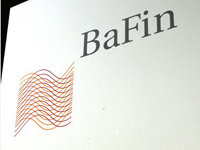Politics
DCGK to be brought in line?
 The tasks and composition of the Government Commission on the German Corporate Governance Code (DCGK) are to be enshrined in the Companies Act, according to FAZ. The CDU Federal Committee on Economic, Fiscal and Financial Policies complains that the panel’s existing freedom of content is constitutionally questionable, and also that its formulations give too little consideration to small, medium and family companies. In addition, the Code reflects applicable legal rules inadequately.
The tasks and composition of the Government Commission on the German Corporate Governance Code (DCGK) are to be enshrined in the Companies Act, according to FAZ. The CDU Federal Committee on Economic, Fiscal and Financial Policies complains that the panel’s existing freedom of content is constitutionally questionable, and also that its formulations give too little consideration to small, medium and family companies. In addition, the Code reflects applicable legal rules inadequately.
Resistance to new BaFin chief
 The change in leadership at the Federal Supervisory Office for Financial Services (BaFin) has been delayed. The nomination of Elke König as new president of the German financial supervisory authority is meeting with opposition in government circles. König is currently a member of the London International Accounting Standards Board, and the Federal Treasury wants her as head of BaFin. It is alleged that high-ranking senior officials have spoken internally against the appointment of the budget expert. Jochen Sanio’s successor, she is to be paid much better, at about €230,000, and with her the other members of the five-member board. The Bundestag must provide for the legal requirements before the Ministry can meet the salary demands of this candidate without official status.
The change in leadership at the Federal Supervisory Office for Financial Services (BaFin) has been delayed. The nomination of Elke König as new president of the German financial supervisory authority is meeting with opposition in government circles. König is currently a member of the London International Accounting Standards Board, and the Federal Treasury wants her as head of BaFin. It is alleged that high-ranking senior officials have spoken internally against the appointment of the budget expert. Jochen Sanio’s successor, she is to be paid much better, at about €230,000, and with her the other members of the five-member board. The Bundestag must provide for the legal requirements before the Ministry can meet the salary demands of this candidate without official status.
CDU ministers divided over women’s quota
The 30 most highly endowed listed companies introduced targets in mid-October for a voluntary commitment to expanding the proportion of women in their leadership positions “significantly” in coming years. Currently the women’s share of board positions is 3.7 percent. Now the companies are to report once a year on the number of men and women on management and supervisory boards. Family Minister Schröder welcomed the corporations’ self-set goals as major progress. Labour Minister Ursula von der Leyen (also CDU) in contrast feels that “we cannot continue at this snail’s pace here.” To her mind, there should in future be a 30-percent rule governing the minimum numbers of women and men on management and supervisory boards.
CSR reporting becoming mandatory
So far it is open to companies in Germany to speak in their annual reports on activities in environmental, cultural and social affairs. In France, however, companies have since 2001 had to submit a so-called Corporate Social Responsibility (CSR) report. In order to unify this Europe-wide, the European Commission now wants, according to Financial Times Deutschland, to present a legislative initiative in 2012 for more transparency in CSR. German companies and associations have so far defended themselves against a legal requirement at EU level with the argument that especially for small and medium-sized enterprises such an obligation only means more bureaucracy. Although the EU does not itself want to prescribe a commitment to CSR, it hopes the obligation to disclose these activities will move previously inactive companies towards greater commitment to CSR. Exceptions for small and medium-sized enterprises are possible here, the Commission said.
Raid because of interest agreements
In mid-October numerous European banks were raided, Financial Times Deutschland reported. It is suspected there was interest manipulation, said the EU’s competition watchdogs. The EU Commission left open which banks were under investigation. The Reuters news agency reported, however, that Deutsche Bank premises in London had also been searched. The allegation is that the banks had formed a market cartel in the Euribor interest rate. The Euribor (Euro Interbank Offered Rate) is an interbank interest rate which influences the cost of consumer and corporate loans. Already in March this year, there were similar suspicions about the so-called Libor (London Interbank Offered Rate). Both the Euribor and the Libor reflect the terms on which the banks lend money to each other for different periods. The Euribor combines data from 44 banks. The European Banking Federation, EBF, which fixes the Euribor daily, therefore regards manipulation as out of the question.















